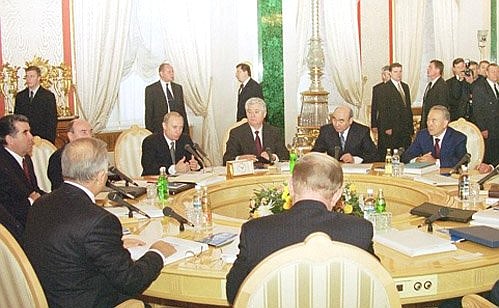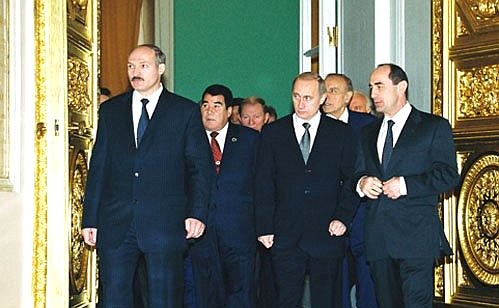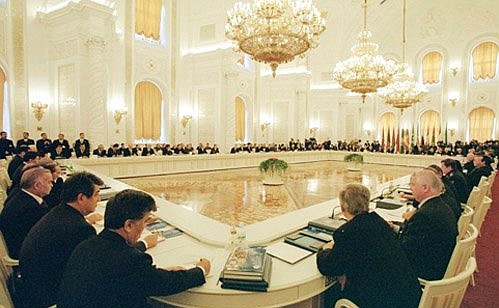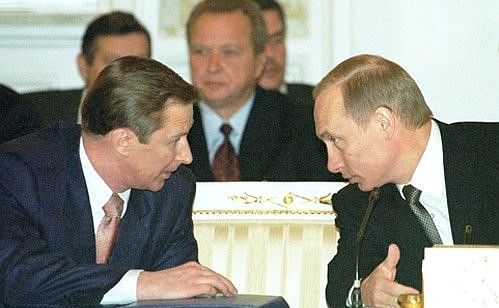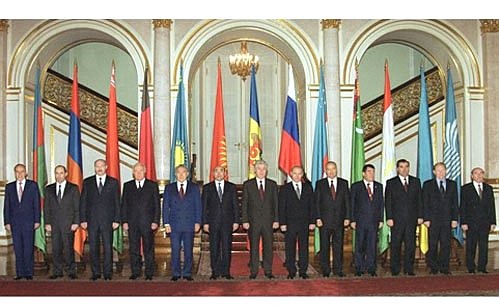President Putin opened the summit, congratulating those present on the approaching anniversary of the CIS. The Russian leader proposed they sum up 10 years of the Commonwealth, discuss its present, and take a glimpse of its future.
The exchange of views took place behind closed doors in St Catherine’s Hall of the Grand Kremlin Palace. The heads of state then moved to St George’s Hall to hold a meeting attended by their delegations.
Coordination of efforts between Commonwealth countries is becoming an increasingly important factor for the world’s financial and economic stability, the Russian head of state said. He said the CIS countries remained the principal suppliers of fuel to the world and must therefore coordinate their moves in the energy sphere.
The Commonwealth was established in the post-Soviet space as a necessary form of integration. The CIS is a vast common market with great potential for development, Mr Putin said. The main dynamics of its economic life are not so much the governments, as companies, businessmen and ordinary people, the President emphasised. They have chosen their nearest neighbours and partners who have been tested through years of history. The Russian head of state noted that people in CIS countries not only entertained the conviction that the Commonwealth had a common labour market, but were also proactive in it.
In the course of the meeting, the CIS leaders also held a discussion on the fight against terrorism. Mr Putin described the counter-terrorism campaign waged by the Russian special services in the North Caucasus and said that an international terrorist called Abu Sayah had been captured in the Chechen Republic. According to Russian law enforcement agencies, Abu Sayah was the deputy of foreign mercenary leader Khattab. The man supplied money to terrorists, organised terror attacks on Russian territory, and maintained ties with terrorist units in Georgia. Mr Putin said that some of the terrorist mercenaries fighting in Chechnya had moved to Georgia, which was regrettable not only for Russia, but also for Georgia’s leadership and population, because it meant occupation of certain regions of the Caucasian republic by terrorists.
